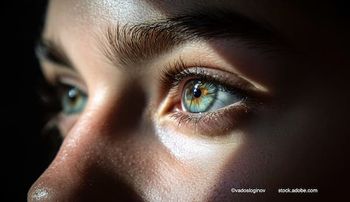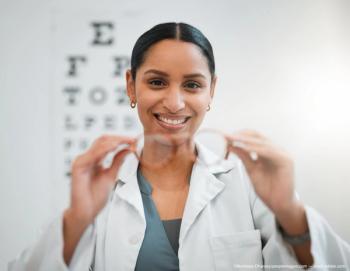
- Ophthalmology Times: May 2021
- Volume 46
- Issue 8
Big Brother is watching: Technology is looking out for me
A word from Chief Medical Editor Peter J. McDonnell, MD.
My electronic devices occasionally send me messages with the apparent intent of helping me. The news they give me is a mix of good and bad.
During the pandemic, I admit to being tempted to stretch out on the couch with a book more than I used to. I have also been trying new recipes on my grill. Some of them have turned out quite well.
As a result, I have been eating more. Finally, I have a couple of so-called friends who are ardent oenophiles and who send me a photo of the wine bottle they have opened to enjoy that evening. Frequently, I succumb to peer pressure and follow their bad example.
My phone, concerned for my health, has been sending me messages no doubt intended to counteract these bad habits.
I get reports on how many steps I took that day, the length of my stride, the total distance I traversed, and my speed. I get an alert telling me that this week I am behind in the number of steps compared with last week.
Previously by Dr. McDonnell:
It does not come right out and accuse me of being a lazy son of a gun, but it is clear to me that when I am behind the prior week or month, my phone is disappointed in and silently judging me.
The one piece of good news is that my Walking Asymmetry Score is 0%. It turns out (according to my phone) that walking asymmetry is the percent of time that steps with one foot are faster or slower than the other foot, and the lower the percentage of asymmetry the healthier a person’s walking pattern. So not to brag, but my 0% is a perfect score.
But it gets worse. My laptop runs software produced by a different megacorporation than the one that makes my phone, and sends me regular emails that purport to analyze my “well-being.”
And the news is bad.
According to this helpful analysis, in the previous month my “quiet hours” (defined as the time outside normal scheduled working hours) were being occupied by meetings (30%) and emails (70%).
When emails arrive during my quiet hours, I read over half of them within 30 minutes. The report tells me that in the previous month, I had 0 quiet days, defined as days during which my quiet hours were not disrupted. This score of 0 is not perfect but in fact is the worst possible score.
According to the report, this means I was not “able to disconnect and recharge.”
Also by Dr. McDonnell:
The implications of my getting the lowest possible well-being score are not spelled out but certainly ominous.
Probably my lack of quiet time to “recharge” and ponder great issues will result in my head exploding or at a minimum the severe deterioration of my thought processes (the latter coming as no great surprise to those who read these columns of mine).
Will my perfect 0% score in walking asymmetry counteract my dismal 0% score in well-being, or am I fated to soon shuffle off this mortal coil?
No doubt these megacorporations’ monitoring and reporting on the speed of my feet and the rapidity with which I read and respond to emails on nights and weekends is trying to help people like me.
But it seems a bit creepy that all of this information about me (and I presume you) is being gathered, stored somewhere, and analyzed.
Articles in this issue
over 4 years ago
Method of predicting glaucoma conversion proves to be fasterover 4 years ago
Dropless glaucoma treatment an elusive path to ease burdenover 4 years ago
MIGS and cataract surgery option offers positive resultsover 4 years ago
Investigators start pivotal subretinal gene therapy trialover 4 years ago
Examining stability of aspheric IOL in cataract patientsover 4 years ago
The use of MIGS trends and patterns in the USover 4 years ago
Snapshot: Managing endogenous endophthalmitis in patientsover 4 years ago
Retinal nonperfusion, leakage linked with center-involved DMEover 4 years ago
New options are on horizon for presbyopia-correcting dropsNewsletter
Don’t miss out—get Ophthalmology Times updates on the latest clinical advancements and expert interviews, straight to your inbox.





























